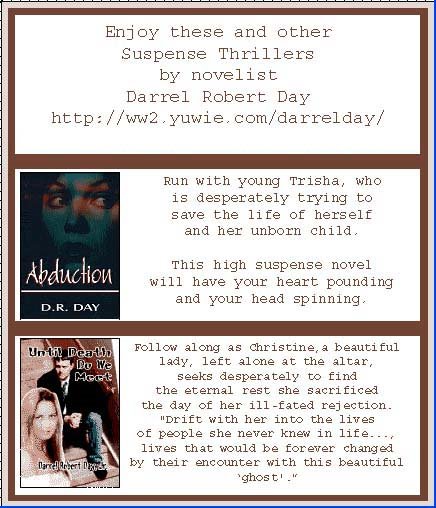Good morning to all,
I received a message yesterday from a friend telling me she was very upset. She had received a review on one of her books that she felt was unkind. She felt the words were strictly critical and harsh. She asked if I would read the review and tell her how she should respond. I told her I would read the review but that I made no promises as to how I might answer her question. Being asked to review a friends works is a little bit like "Does this dress make me look fat?" Perhaps it is more likened too asking if someone likes you better with or without the beard "after" you have shaved it off. Better to have left the beard until you had the answer. At least then you would have the ability to shave it off, should the answer be "Without."
That said, I took myself to the review in question and read. As I read the words left there by a reader, I found myself thinking about critical versus constructive criticism. Before writing her back, I took a moment to look up both words. Was there a real difference in the two words? Defining constructive criticism gave me these words. "Offering valid and well-reasoned opinions about the work of others,
usually involving both positive and negative comments, in a friendly
manner rather than an oppositional one. In collaboration work, this kind of criticism is often a valuable tool in raising and maintaining performance standards." I then looked up criticism and found this definition. "Definition of CRITICIZE. to express one's unfavorable opinion of the worth or quality of ... Synonyms blame, censure, condemn, denounce."
Deciding there was a very definite difference in the two definitions, I went back to the review. I won't copy it as I don't want to expose my friend. The reviewer wrote that after reading the book, he had been left with mixed feelings. He wanted to scream out the wonderful places the story had taken him while wanting to scream at the author for the manner in which she took him there. The time line jumped around in such a pace that he could no longer decipher which era he was in. The suggestion that perhaps a rewrite, defining times and places might be best for this author. "After finding the need to go back numerous times and re-read pages to find where the character was, I skipped to the end, read and closed the book. I would be more likely to urge readers to purchase this book, if and when a rewrite was available."
Were his words harsh? Perhaps in the eyes of the author they might appear to be. Looking at the definitions of criticism and constructive criticism, I found no problem with the reviewers words. To construct means to build or put together, to erect that which can be entered. Definition of CONSTRUCT. 1: to make or form by combining or arranging parts or elements : build; also: contrive, devise.
I felt the reviewer followed the word constructive to the letter. The review praised her writing while at the same time, giving direction of how the book might be assembled differently. My response to her was as follows.
"__________,
After reading the review, I could find no issues with what he had to say. He was honest and gave you avenues to correct what he felt might hinder sales. The ability to accept criticism, even if it appears negative, is needed for a writer to continue on their journey. Viewing reviews as personal stabs at the writer will eventually destroy the writers desire to write and strip them of their means to write comfortably. If you take each review and make it a direct hit on you personally, you erase the opportunity to better yourself as a writer.
I feel this was a very constructive review and having never read your novel in it's entirety, I feel unqualified to question his evaluation of your book. Read the words he left for you and open your mind a bit. Get past the feeling of rejection and look to see what you can do to make this a better novel. He gave you, what I consider to be excellent direction to making this book the seller you want it to be. Remember that not all reviews will be good and not all negative reviews are Bad. Sort them out, be glad someone has chosen to read your works and move on."
We, as writer and readers, work hand in hand. I take each and every review as a good thing, no matter what it says. To be reviewed is to be read and that is why I write. Having the ability to take the good and the bad reviews is to have the power to maintain my desire to write and not allow words to discourage my writing. Constructive criticism can be one of the most powerful boosts a writer can receive. They do not say you have failed as a writer. They tell you you Are a writer and you have been read. What you do with the words from a reader defines where you are at with your comfort-ability in writing. You can allow them to discourage you or you can use them as a guide to where you are going.
Saturday, December 8, 2012
Posted by Darrel at 8:00 AM
Subscribe to:
Post Comments (Atom)
















0 comments:
Post a Comment